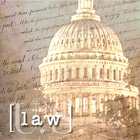
|
COURT FACES QUESTIONS OF BASIC FREEDOM 5 May 2003 The Supreme Court has agreed to hear arguments regarding a Texas law banning "sodomy" and homosexual sex, even within the confines of private homes. The issue raises serious questions about the fundamental rights granted by the Constitution and the Bill of Rights. It is often asserted that the fundamental right to privacy stems from the First Amendment right to exercise freedom of expression, of assembly, and to worship as one pleases. The First Amendment clearly protects the interests of dissenters and marginal groups, but there are other Amendments which may more precisely recognize and enshrine the right to one's privacy. The Fourth Amendment, for instance, begins:
The Ninth Amendment rebuffs the most common claim of many Constitutional "literalists":
The Fourteenth Amendment, in its famed "Equal Protection Clause", delineates the requirement that no legislative power may abridge the freedom of some, in this way making them unequal before the law:
The question of whether any private luxuries or privileges can be upheld if the sanctity of the home is violated by the court, now comes to the forefront. In this particular case, consensual activities which are a matter of human affection, or of biological impulse, are equated to violent assaults, interpersonal violations, and criminal acts dangerous to the survival of individuals and communities. Essentially, acts which in no way infringe upon the freedom or welfare of others are being equated to those which do so severely. The very concept of individual liberty is at stake in this case. Many are interested to know whether the conservative justices on the court will rule in favor of expanding the authority of states to control individual activity within the private sphere, or whether they will favor the principle of broader individual liberty. In the current "Digital Age", privacy issues have infiltrated the spheres of politics, commerce, and legislative authority in ways not previously envisioned, except perhaps by science-fiction authors. This particular case could have far-reaching consequences, in areas not clearly related to the specific issues of the case itself. The privacy debate penetrates in various ways into the fabric of everyday life: individuals argue for a right to privacy which protects them from the appetites of Big Business interests and from governmental intrusion, while Big Business interests argue for a right to privacy which protects their hunger for information about individuals from governmental regulation or intrusion. The United States may be on the verge of answering serious questions about where power should reside: in the Big or in the small, in the organization or in the individual. |
||||||
|
|||||||


